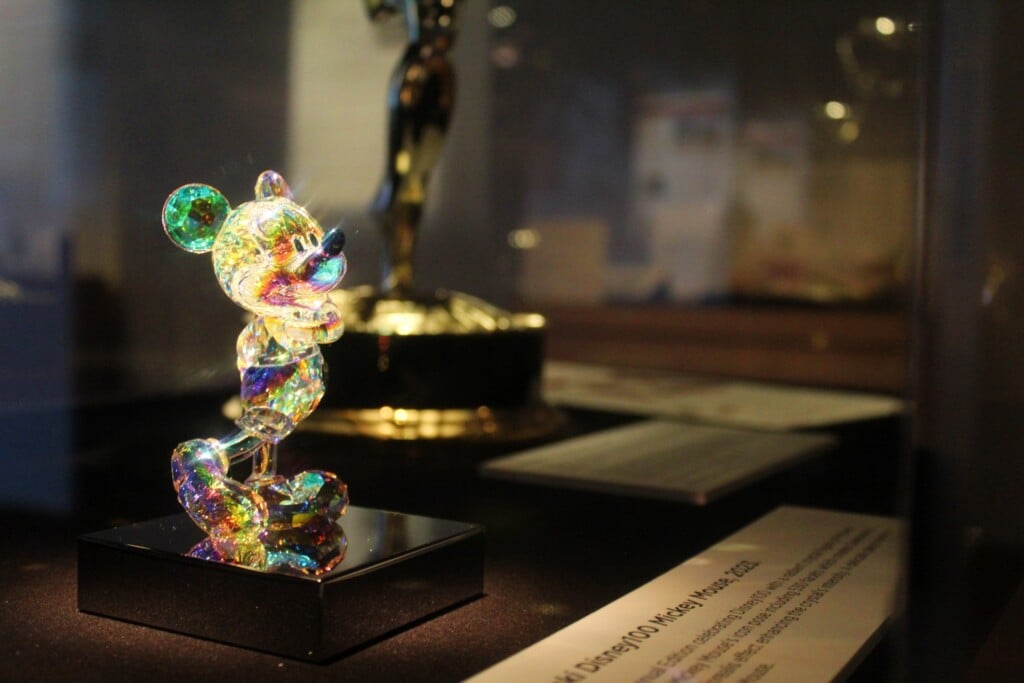Grand Hotel
Amazing how a town can feel both small and huge at the same time.
There I was last week, hustling to KCK to catch Minds Eye Theatre’s aching but hopeful Sad Hotel, a show I was a little loath to review because its director, Sara Crow, was something of a childhood friend of mine: our fathers were both air-traffic controllers fired by Ronald Reagan, whose lucid cruelty has been forgotten in favor of his twinkle. Instead of mourning the harm he did to this country, we imagine him pinned merrily up there in the heavens like one of the talking stars in It’s a Wonderful Life.
Anyway, I pulled off Interstate 70 into that burg of scrub grass and gutted buildings, mulling the tinyness of Kansas City and how odd it is that someone I knew when I was 12 (but have hardly seen since) is staging the only serious play in town right now. And at that moment, I became a total yokel.
I got lost. Totally turned around. To my shame, we hit the Alcott Arts Center almost 15 minutes late.
Guess my little town’s too big for me.
With the stage manager’s blessing, we went in. Just a couple of minutes later, we were deeply absorbed. An hour and a half after that, we were sniffling back tears.
Sad Hotel dares to fictionalize a rough patch in the life of Tennessee Williams, concentrating on a protracted breakup between Williams and Frank Merlo, his longtime lover, housekeeper and minder. In the early ’60s, the just-past-50 playwright fled a disastrous New York premiere for his home in Key West. There, as author David Foley imagines it, Williams pickles himself with drink and finds succor with young hustlers, constructing the kind of rich, garish drama he no longer has it in himself to pen. This Williams has grown bored with Merlo and taunts him by taking up with hot young thing Pedro (Ryan LaFave, pouting adorably). Merlo is chased away, but a real tragedy — one not rooted in Williams’ boredom and self-involvement — forces a reconciliation, and they must examine, as all couples should, what exactly it is that they are, both with and without each other.
As Williams, Craig Taylor Aikman charms even as he flirts with monstrousness. He makes the great man funny, enraging and heartbreaking, mining the deep veins of fear and hurt running just beneath Williams’ caustic swishiness. It’s a dream role, the chatty narcissist who sparkles even in the dregs of his life, and Aikman dispenses his bons mots with weary pleasure. In this telling, the playwright’s artistic power has ebbed, but he’s lost none of his incisiveness. Now it’s turned on himself. Explaining his infatuation with Pedro, Williams admits — with some pained pleasure— “He doesn’t let me see how much my touch repels him.”
Aikman shines in monologues, shouting matches and a variety of encounters with friends and family. Outside his caustic truth-telling, perhaps this Williams’ most winning trait is the joy he takes in watching others perform. As cousin Mary, Robyn Faulkner is blessed with a comic monologue so daftly obscene that it alone is worth the ten bucks to get in. But as hard as we laughed, Aikman’s Williams seemed to savor it more, nodding into his drink and egging her on with an oily chuckle. He’s the audience he wishes he still had.
The rest of the cast is almost as strong. Tom Sawyer brings a hangdog, Ralph Naderesque quality to Frank, and the way he toughens up toward the climax is quietly affecting. His good moments stud the play: a shouting match with Williams has a stunning savagery, and his turf war with LaFave is so cattish I half-expected him to spray. Faulkner’s big speech is a marvel, swerving from riotous to hurt in a heartbeat. Ardis O. Petersen brings dignity to light battiness but isn’t given enough to do. Only Jennifer Huesing’s nurse, appearing sporadically late in the show, betrays the production’s amateur roots: She speaks like a ’40s telephone operator and overpowers her handful of scenes.
It builds to a gently tragic ending capped with a final speech from Williams that sweetens the hurt. It left us with much to discuss afterward. The combination of Foley’s memorable, tough-minded script, these performances and Crow’s unfussy direction results in a drama far more potent than we expect in August. It would sting and delight during any week of the year.
But even as I insist that you get out there this weekend, consider these caveats. The Minds Eye stage is in a refurbished classroom high in the Alcott Arts Center, an old brick school building whose new life demonstrates the best of urban renewal; unfortunately, the Center isn’t handicapped accessible, and my poor companion, who was hobbling along on crutches, slowed us up almost as much as my sense of direction did. Another problem is the air conditioning, which blasts full-bore throughout the show. Sitting up close, it’s no problem, but in the back some dialogue gets drowned out.
What shouldn’t cheapen this recommendation is that this is a show that (a) I made it to late and (b) is put on by a woman I knew growing up. That, I’m afraid, is just how things go in a city of whatever size this one is.




